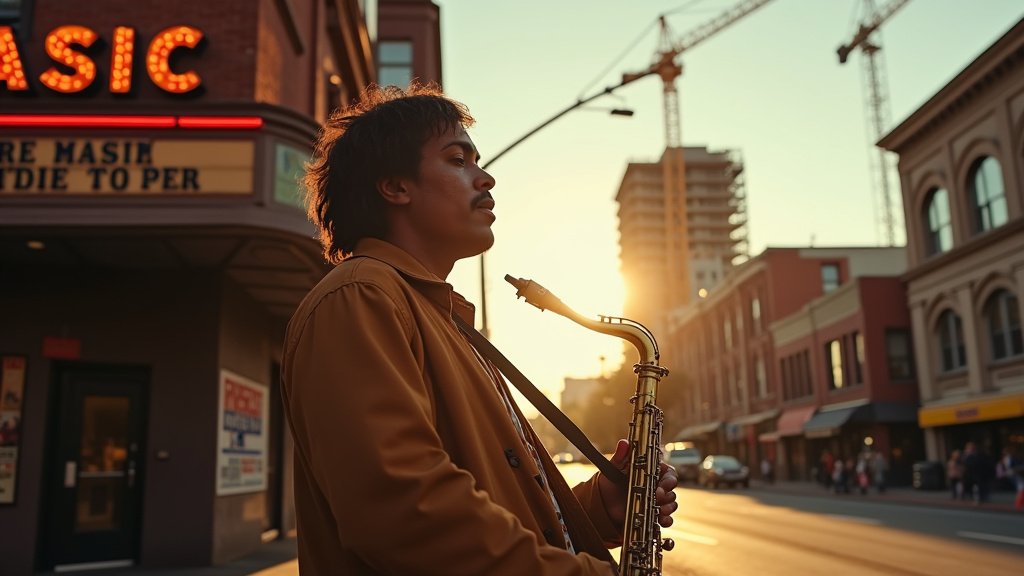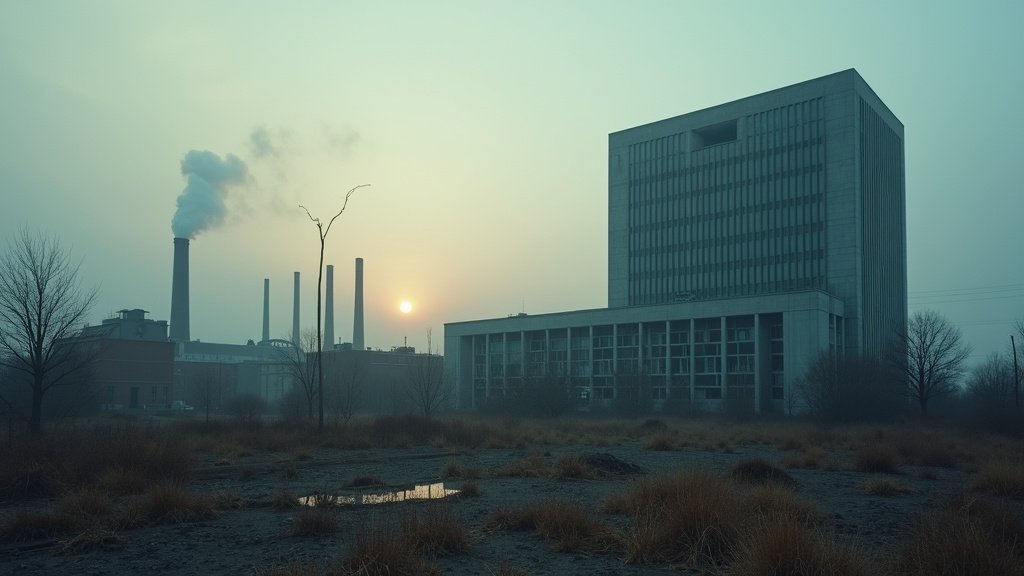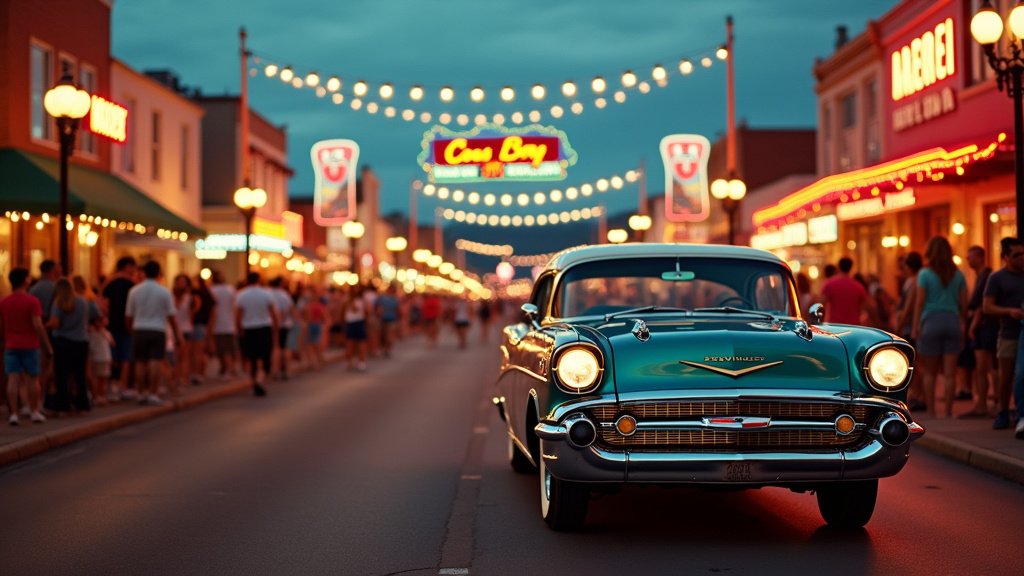Portland’s vibrant music scene is more than just entertainment; it’s a powerful engine driving significant economic activity and fostering the city’s unique cultural identity. The Portland music industry, concentrated within the city, represents a crucial sector for Oregon’s post-pandemic recovery, supporting a diverse ecosystem of professions, trades, and businesses. Despite its substantial benefits, this vital industry is facing severe headwinds, threatening its very existence and prompting an urgent call for government intervention and strategic support.
The Economic Resonance of Portland’s Music Industry
Oregon’s for-profit music scene contributes an estimated $3.8 billion in economic output statewide, with approximately 80% of this impact centered in Portland. [8] In 2021 alone, the commercial music industry directly created over 16,400 jobs across Oregon, leading to a total of 22,927 direct, indirect, and induced jobs, and generating close to $1 billion in labor income. [4] This economic prowess extends beyond direct employment, feeding into various other sectors. For instance, rough estimates suggest that off-site spending by attendees at live performance events injects an additional 4,154 jobs and more than $186 million in labor income, primarily benefiting the restaurant, hotel, transportation, and retail industries. [4]
Music tourism is a rapidly expanding global trend, and Portland is a significant beneficiary. Data reveals that 23% of tickets sold at the city’s six largest venues were purchased by individuals residing over 50 miles away, with out-of-state visitors accounting for up to 30% of attendees at events like the Waterfront Blues Festival. [4] Furthermore, 27% of visitors to the Portland Music Month website in 2024 hailed from outside Oregon, with 1,000 international visitors. [4] These figures underscore the industry’s capacity to draw external revenue and bolster local businesses, akin to how other thriving sectors contribute to the city’s vibrancy, such as [Portland’s Vibrant Food Scene: Closures, Openings, and Weekend Highlights (June 2025)](https://willametteweekly.news/portlands-vibrant-food-scene-closures-openings-and-weekend-highlights-june-2025/). Remarkably, Portland boasts more music venues and performing musicians than prominent music hubs like Austin or Nashville, and is home to over 10,000 unique recording acts and more independent record stores than any other U.S. city. [8, 15]
Mounting Challenges for Portland’s Music Industry Ecosystem
Despite its considerable contributions, much of the for-profit music scene is struggling to survive. [4] The COVID-19 pandemic dealt a devastating blow, causing employment in venue and event sectors to plummet by up to 60%. [4] Even as the world reopens, the recovery has been uneven. A significant 64% of independent venues were unprofitable in 2024, grappling with soaring operational expenses, including rising staffing and insurance costs. [4, 5, 6, 18] Concert attendance hesitancy persists, leading many venues to operate at reduced capacities and lose crucial revenue from food and alcohol sales that typically underwrite events. [10]
Beyond pandemic aftershocks, development pressures pose a constant threat, with new residential projects often leading to noise complaints that jeopardize long-standing venues. [6, 21] Regulatory hurdles, dubbed “code clutter,” and inconsistent noise enforcement further complicate operations for artists and venues alike. [11, 12] The current cost-of-living crisis exacerbates these issues, making touring commercially unviable for musicians due to inflation and high energy costs, while simultaneously reducing disposable income for potential ticket buyers. [31, 33] The struggle to attract and retain skilled staff, who shifted careers during pandemic shutdowns, also remains a significant challenge. [18, 28]
A looming concern for the independent music community is the expansion of large corporate entities like Live Nation. Despite facing antitrust lawsuits from 40 states and the Justice Department, Live Nation is proceeding with plans for a large venue in Portland, raising fears among local music advocates about unfair competition and the potential erosion of Portland’s distinct independent music identity. [30] This dynamic underscores the urgent need for local support to preserve the unique character of the city’s music landscape, much like the efforts made to preserve cultural exchanges like [MXPDX Festival Bridges Oregon and Mexico Through Brews and Cultural Exchange](https://willametteweekly.news/mxpdx-festival-bridges-oregon-and-mexico-through-brews-and-cultural-exchange/).
Charting a Course: Advocacy and Aid for the Portland Music Industry
Recognizing the precarious state of the industry, musicians and City Council members are actively advocating for robust government aid. District 1 Councilor Jamie Dunphy, a musician himself, champions the idea of the music industry as a \”unifying inspiring vision\” for Portland’s future, encompassing economic development, public safety, and community identity. [4, 15] Proposed initiatives include establishing a Small-Venue Problem-Solvers Table for direct dialogue with city staff, creating flexible loading and parking permits for musicians, implementing seasonal noise variances, and improving venue inspection standards. [4] A key recommendation is the launch of an Independent Music City Office, a public-private nonprofit dedicated to advocating for Portland’s commercial music ecosystem. [4]
Further policy considerations include formally recognizing Portland as an independent music city, reforming outdated noise codes and liquor licensing, and implementing acoustic zoning standards to protect existing venues from encroaching development. [15] Dedicating tourism dollars to the independent music industry and creating city staff positions to support music are also on the agenda. [15] Advocacy groups like MusicPortland and the Independent Venue Coalition (IVC) have been instrumental in these efforts, lobbying for industry-specific financial relief during the pandemic, which saw Oregon allocate $50 million in federal CARES Act funds to arts and entertainment organizations. [16, 17, 25]
While downtown Portland’s overall post-pandemic recovery remains gradual, the increasing foot traffic on weekends, often driven by events and cultural attractions, highlights the arts’ pivotal role in revitalization. [29] However, without sustained effort and collaborative solutions from both public and private sectors, the unique sound of Portland’s music scene risks being muted, diminishing not only its economic impact but also its invaluable cultural legacy. Continued support is essential to ensure this vibrant industry can thrive, offering a compelling reason for both locals and visitors to engage with the heart of the city.




